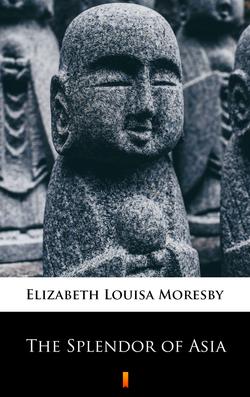Читать книгу The Splendor of Asia - Elizabeth Louisa Moresby - Страница 4
На сайте Литреса книга снята с продажи.
ОглавлениеPREFACE
I have endeavoured in this book to make not only the story but the teaching of the Buddha intelligible and human, so that those who wish to understand one of the greatest facts in history may not find themselves entangled in the mazes of scholastic terms, and may perhaps be enabled to realize its strange coincidences with modern psychology and certain scientific verities. The teaching of the Indian Prince has indeed nothing to dread from science. Sir Edwin Arnold’s beautiful “Light of Asia” ends very early in that great ministry, and I have continued the story to the death of the Buddha, and have enriched it with many scriptures and ancient traditions unknown to or unused by Sir Edwin. Words would fail me if I attempted to express how necessary I think a knowledge of this high faith and philosophy is to leaven the materialism of the West, and the reception my books on cognate subjects have had encourages me to think there may be those who will see in what I here set down a great revelation of truth. It is, at all events a truth which influenced not only the mightiest thinkers of Greece and Rome, but also the beginnings of Christian teaching–which it antedated by five or six hundred years. It may well claim kindred with all the great faiths, persecuting and opposing none which differ with it, and this for reasons which are easily seen in the teachings themselves. In relation to its noble and scientific austerity no words are needed.
Of the Founder himself, I may quote a great Buddhist scholar’s opinion, one which none who have studied the subject impartially will controvert. “Perhaps never while the world has lasted has there been a personality who has wielded such a tremendous influence over the thinking of humanity. And whoso recognizes this will also recognize that almost two and a half millenniums ago the supreme summit of spiritual development was reached, and that at that distant time in the quiet hermit groves along the Ganges already had been thought the highest man can think.”
Of the august beauty of the Life those who read will form their own judgment. It has been the mainspring of the highest art of Asia. It has brought peace to myriads. It will bring it to many more.
I have consulted all the available Scriptures, and have not forgotten the great traditions. I am indebted to all the best known scholars, including Max Müller, Faüsboll, Dahlke, Rhys Davids, his accomplished wife, Beal, and many more. I must mention Professor Radhakrishnan and other Indian writers, and among illuminating thinkers I must not forget Dr. Carus, and Mr. Edmond Holmes. To the latter’s work I owe a debt because he appears to me to appreciate more keenly than other writers the true point of junction between the early and later interpretations of the Buddha’s teaching. I have myself had the advantage of studying later Buddhist interpretation with Japanese scholars, with whom I have translated the Buddhist Psalms of Shinran Shonin. About some of these interpretations there will always be points of difference until we have access to the whole body of ancient teaching in the Far East as well as in India, and freedom from all error is beyond hope.
If any Buddhist scholars should look into this book they will recall the immense difficulty of (so to speak) translating their work for the public, especially where the words of one language often fail to represent the thought of another. They will therefore be lenient to shortcomings. They will note that I have employed Pali or Sanscrit words and names alternatively as I thought they would be more familiar or easier to remember. Karma for kamma, and Nirvana for Nibbana are instances of many others. I have omitted accents as mystifying to those unfamiliar with Indian languages.
I can scarcely hope to satisfy scholars and the general public. But if I succeed in interesting some of the latter, the former, will, I think, recognize that my aim was justified.
L. Adams Beck.
